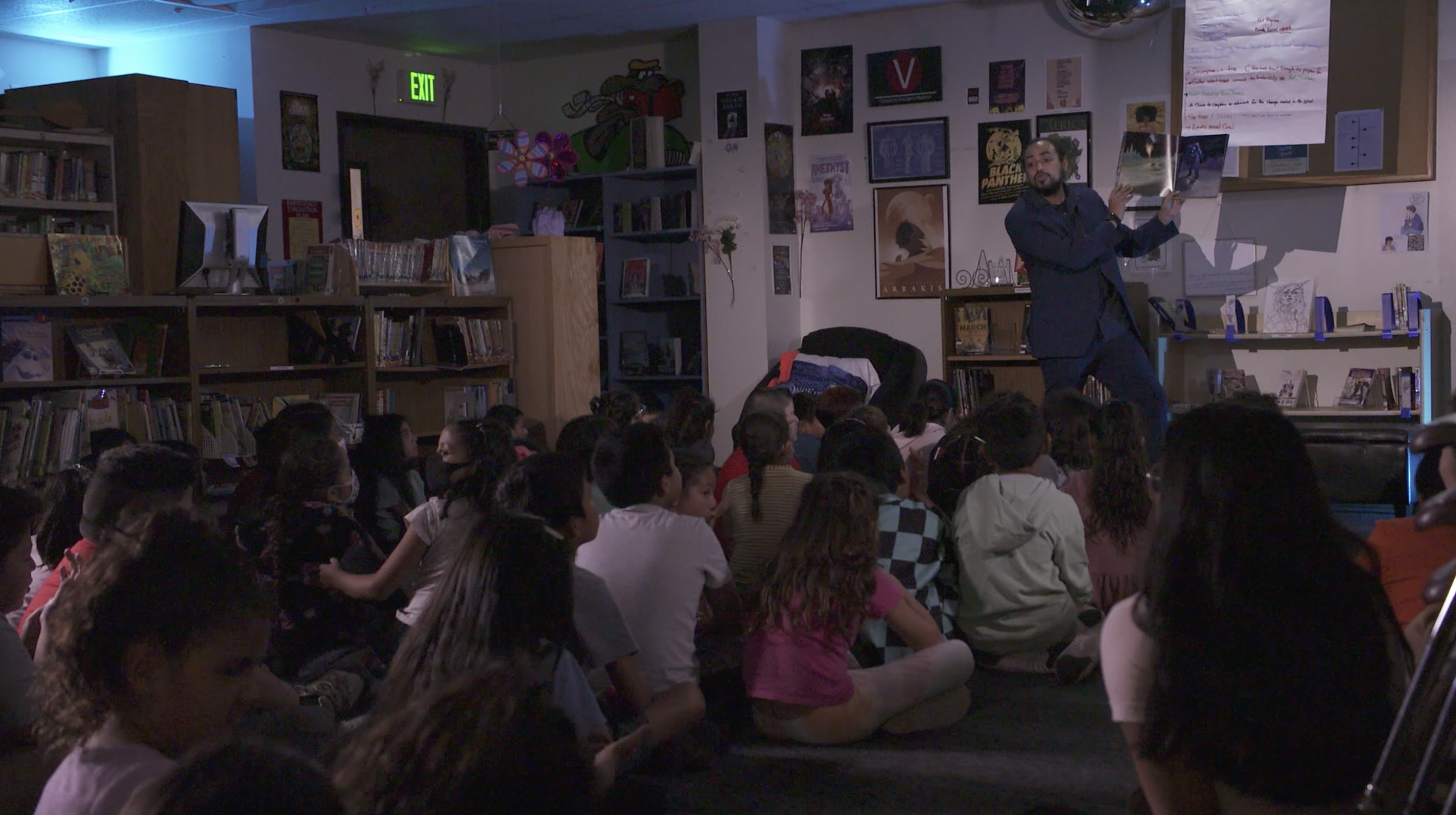School Libraries as Hubs for Nurturing Changemakers

Turning Student Voice into Action
When Dustin Alexander came to the Orange County Educational Arts Academy (OCEAA) to serve as their new librarian, he asked himself: How can I help students stay curious and connected to the things they are learning about? His answer: help them take charge of building a space where they are most free to drive their own learning - the library. To Dustin, a young person’s journey as a changemaker often starts with books. “You’re not escaping reality with a book,” he explains. “Instead, you will find a truth in there. And you’ll bring it back, find it to be socially relevant, and do something with it.”
Dustin introduced the idea of the Equity Integrated (EI) Library at OCEAA, putting students at the center. He was fortunate that OCEAA, already recognized and valued student voice. “But you need to find a way to elevate that voice,” he reflects. His plan for the EI Library was as a space where student voice could turn into action.
Dustin started by inviting a group of students to help design the library to be a powerful place for students to support one another. Together they addressed language differences by bringing in new collections of books in Spanish for the majority native Spanish speaking student body. They increased the comic book collection as an engaging on-ramp to students reading chapter books and created a student-led mentorship program where students help each other improve their reading skills. A sixth-grader, Amaya, shares, “It feels like I can just do. I can help and I can ask questions.”
Today, the power of the EI library is felt beyond the stacks of books. Monica Bennett-Gee, OCEAA’s Dual Language Immersion Curriculum and Instruction Coordinator, noticed that beyond the physical changes in the library the overall feeling has shifted. “Now kids come into the library with agency; they feel that they are changemakers in terms of what they find in the library—the fact they have a voice in what books are available, what they can read here, what they can do and learn here, and they’re motivated to participate in this community.” To her, this new kind of agency has changed how and what they study in other classes. “They have different questions for their teachers now, and those questions can really affect what they’re studying.”

Connecting Passions to Solutions
As a young person himself, Dustin was a voracious reader. His family supported that passion by always asking him questions that helped him connect to the written word. “They would ask me things like ‘what is it like to be in that position? Why do you feel that way when you read?” There were few spaces where he felt safe in his native Brooklyn, NY, but libraries were one of those where he could be himself. The Equity Integrated Library concept builds from that early experience and links his own passion books to the change he wants to bring to the lives of his students. “This is a chance to give them that space to become who they are, to give them the tools they need to be,” Dustin says. “To offer them what I needed, when I was at my crossroads in my community growing up.”
Across the United States, educators like Dustin are creating spaces where their students can practice taking initiative and changing something they care about. In the EI Library, students lead and support one another. Through this, they start to build confidence that they can do the same in other aspects of their lives. “[Students] sometimes come into the library space and go, ‘yeah, we don’t like this and this.’ And we’re like, ‘Write it down. Let’s talk about it so we can bring it up. Advocate for yourself, your community. . . I am hoping that with the EI library space, that is something that we do. We advocate for ourselves as a community.”
To Dustin, a world where his students and all students have the experience of being powerful contributors and changemakers is one possibility. “If everybody was a changemaker, we could actually address the larger problems that could be on the horizon that we’re not able to see,” Dustin reflects. “They are complex problems, and so we have to acknowledge that they have complex solutions, but they’re not impossible solutions.” And through the EI Library, he is helping students link their passions to solutions.
This story is part of the Time for Change series.